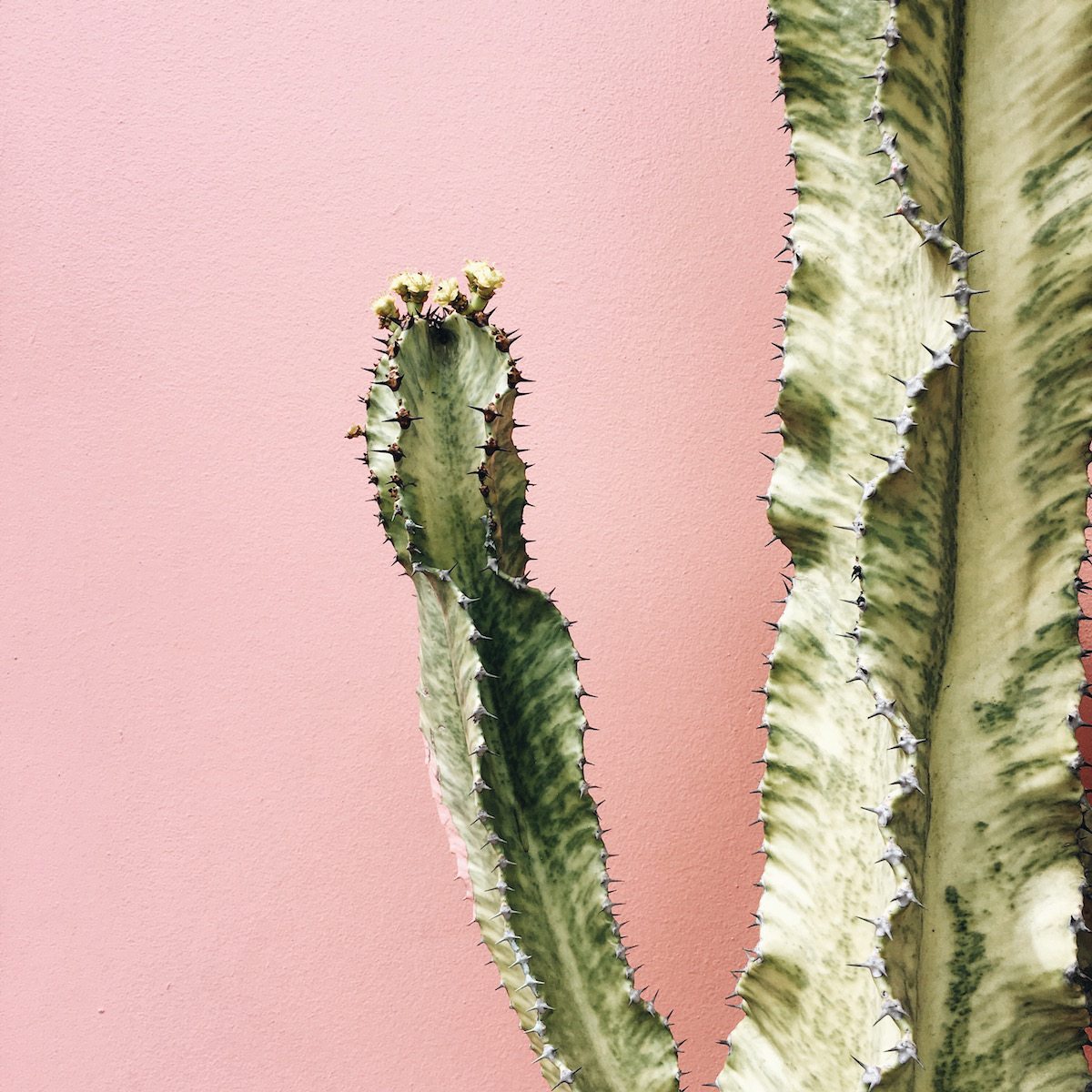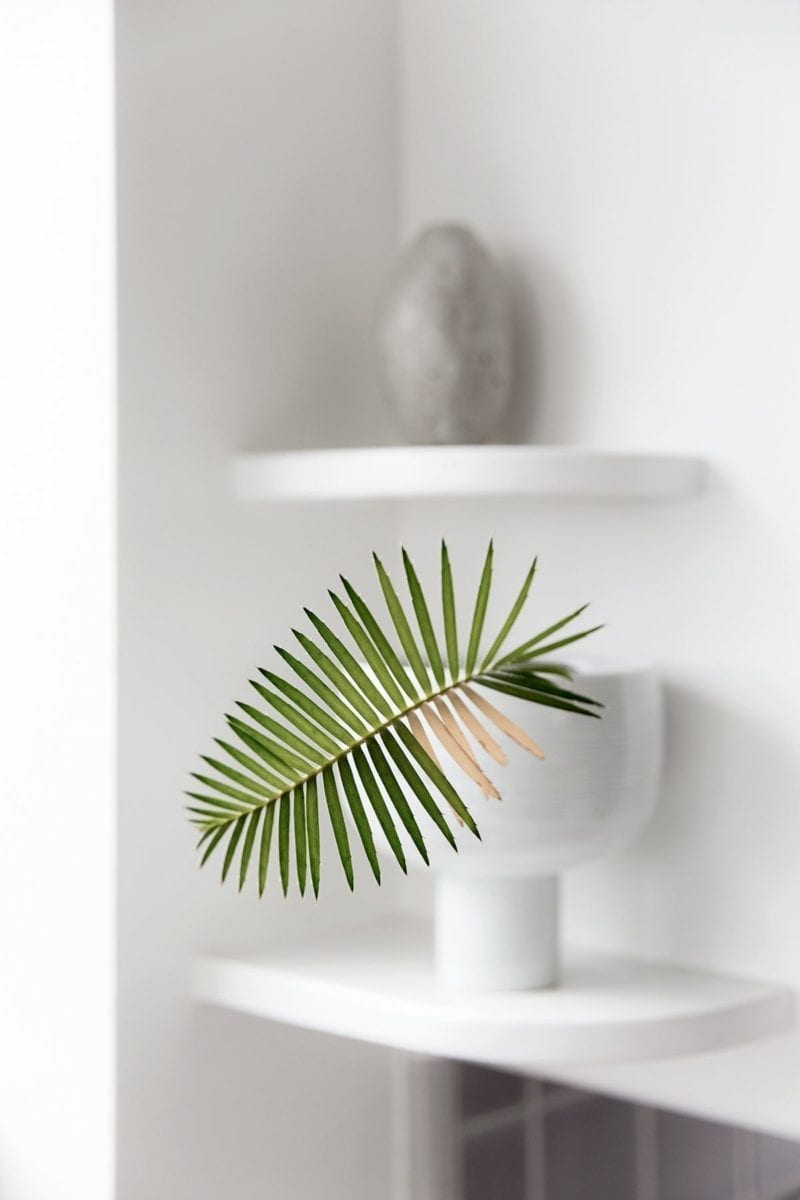When most people start trying to have a baby, they immediately think about how they can improve the health of their body and I was without a doubt one of them.
Tracking my temperature and ovulation cycle helped me feel in control and allowed me to work toward my goal of getting pregnant. However, after months and months of trying, and seeing one negative pregnancy test after another, I began to lose hope. My thoughts went from being positive to, “Something is wrong with me and I’m never going to get pregnant.”
After many months of this, I gave up on trying. I stopped tracking anything and instead, unknowingly, started nourishing my mind by taking long walks in silence. At the time I didn’t understand why these walks felt so good to me, but looking back I can tell that this was when I slowly started a meditation practice without even noticing it.
After only a week of doing these meditative walks, I started sleeping better, felt closer to my husband and began having more compassion towards myself.
Two months later, I got pregnant.*

Pregnancy, just like fertility, came with its own ups and downs. I was ecstatic to be pregnant, but found myself stressing about the health and well-being of my growing baby on a daily basis. To make matters worse, at seven months pregnant the yoga studio that I worked for decided to stop offering classes and I unexpectedly lost a job that I loved.
As challenging as this moment was, it was one of the best things that’s ever happened to me. As fate would have it, on the same day I lost my job, a friend told me about an app for guided meditations for pregnancy and suggested I try them out. I was hesitant, but because the meditations were guided and tailored towards me and my baby, I felt comfort in knowing that I would be supported as I learned how to develop a more structured meditation practice.
Within just a few days of meditating, I felt a shift in not only my perspective, but my relationship with my baby. I started worrying less and instead began trusting myself more. I was able to look at the last trimester of my pregnancy not as a time when I lost my job, but as a time where I got to connect with my baby, myself and my husband like never before.
Meditation got me through one of the most difficult times in my life; it saved me.
Here are some tips I’ve learned through my own fertility journey that can help with meditating during all phases of the reproductive cycle:
During Fertility
Your mind and body are connected, so it’s important to check in with your emotions to calm your mind and relax your body. Meditating has the potential to promote fertility by stimulating the release of pregnancy hormones from your brain and ovaries, which can be inhibited by stress.
Many women experience anxiety during the two-week wait period, so I recommend increasing your meditation practice during this time. What I love about Expectful’s Preparing To Conceive meditations is that they cover both emotional and physical awareness, encouraging you to focus on a singular emotion you’re experiencing or the space you’re sitting in, so you can pick meditations that will speak to directly how you are feeling in that moment. If this is your first time practicing meditation, you might be glad to know that your practice can happen however works best for you, whether that’s sitting on a chair or your bed.
During Pregnancy
Through meditation I learned that if I take time out of my day to recognize my thoughts, I can have more control over how much they affect me. It’s my wish for any woman reading this that you remember to nourish your mind just as much as you fuel your body.
Meditation is a great time to connect with your baby. Meditation also increases our levels of oxytocin, a hormone that increases bonding, which is great for you and your baby.

During Postpartum
Five days into postpartum, I had only slept a total of six hours. I had forgotten all about meditation and was doing my best to simply stay afloat. I was having trouble breastfeeding and my daughter wasn’t getting enough food, which left her crying around the clock. My lack of sleep was getting the best of me and on day five when I decided to get some rest, I couldn’t fall asleep. This felt like torture. In an effort to do something that would relax me, I decided to meditate.
This was the day I realized I was falling into the postpartum depression (PPD) and it was also the day that meditation became a non-negotiable part of my daily routine. Although I still went through PPD, meditation allowed me to see my negative thoughts and realize that I wasn’t them. I’ll never forget closing my eyes and seeing one negative thought pop up after another. I put on one of Expectful’s meditations and used it to guide my thoughts in a different direction. I wasn’t always perfect, but I was exercising an important muscle that would strengthen over time.
It’s my wish for any woman reading this that you remember to nourish your mind just as much as you fuel your body.
It surprises many mothers when I tell them that I upped the amount of time I meditated during the first six months of new motherhood. Although time is difficult to come by with a newborn, I made it a point to meditate twice a day for twenty minutes because I saw how much it improved my focus and sleep.
In the end, my journey from fertility to motherhood was a complete lesson in the power of meditation. Every fertility and pregnancy journey is unique, and while practicing meditation doesn’t come with guarantees for becoming pregnant or for your smoothest pregnancy, it can bring you your most mindful, centered self as you experience this profound journey.
Have you tried meditation during pregnancy or other stages of life?
*This statement is meant to reflect solely the author’s experience and neither minimize nor elevate one fertility situation over another.
Feature Image via Esther Lee











4 comments
Thank you so much for sharing this! My husband and I are at the very beginning of our fertility journey, and it is already incredibly stressful. I’m glad I found out about this resource early on!
Thank you for sharing Kate, feel free to email me anytime – always here to support you on your journey. 🙂
This article is very helpful! My husband and I both enjoy meditation and incorporate it into our regular rhythms of life. We are hoping to grow our family in the next coming year(s) but we are both having trouble dealing with the anticipated anxiety that childbearing can bring. Expectful looks like something I’d be interested in exploring as time gets nearer. Thank you for sharing!
Glad you found your saviour during pregnancy! I could never get into meditation myself, despite all the great experiences about it that people share around. It was interesting reading your story all the same.
–
Charmaine Ng | Architecture & Lifestyle Blog
http://charmainenyw.com